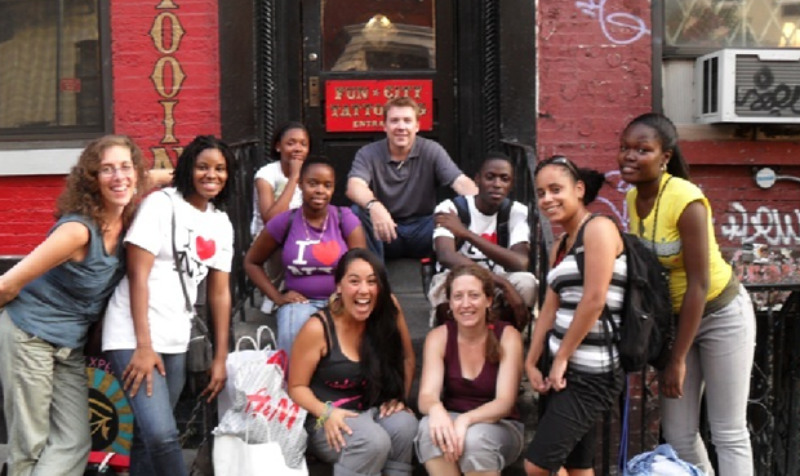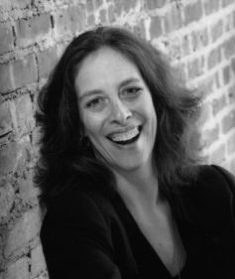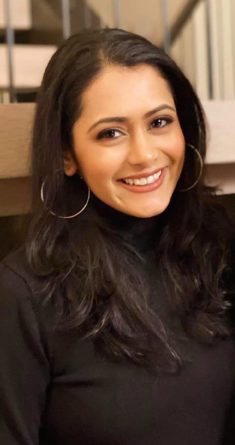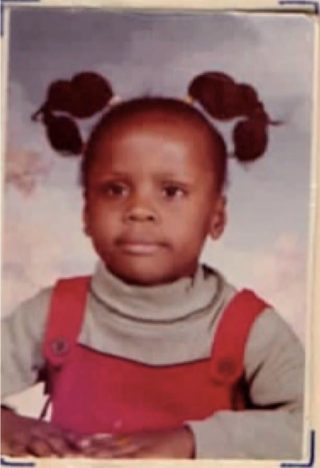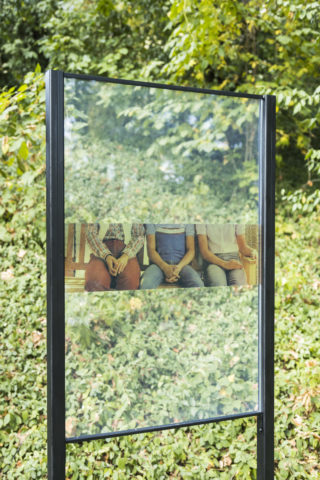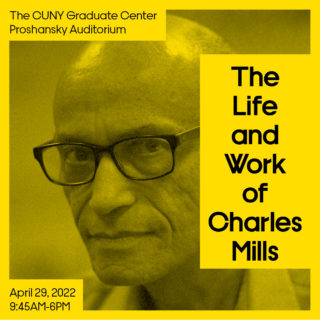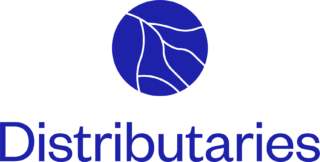
Via this series of interviews, Distributaries seeks to sketch out the contours of the public humanities ecosystem—the centers, institutes and initiatives undertaking the work of the public humanities—at the City University of New York. Apart from sharing the specific work these programs and centers do, we also wish to offer up their visions of the “public humanities” as a field, and the rich ways in which the ethos of this term is realized.
For this interview, I had the opportunity to speak with Michelle Fine, co-founder of the Public Science Project (PSP) at The Graduate Center. We spoke about the work that the PSP does, Critical Participatory Action Research (PAR) as an epistemology shaping publicly engaged research commitments, as well as how the task of collaborating with communities demands researchers to center their accountabilities.
–Queenie Sukhadia
Queenie Sukhadia (QS): Can you tell me a little bit about the PSP and your work with it?
Michelle Fine (MF): The PSP is about twenty-five years old. María Elena Torre is the director and I’m the founding faculty member. We’re a collective of variously experienced and educated researchers engaged in activist research alongside movements for racial, educational, and abolitionist justice.
We’re situated within the Critical Psychology Department at the CUNY Graduate Center, and our students and faculty are deeply engaged with critical theory—decolonial, feminist, critical race, queer, disability, and/or Marxist theory. We’re also deeply committed to history and qualitative and quantitative research methods.
If I had to define what we do, I’d say that we bring research and what we call “epistemic justice” to struggles for material, dignity-based, and liberation-based transformation. That can take many forms: policing in schools, issues faced by queer youth, foster youth at CUNY, women in prison demanding college education or even freedom (because they got there due to domestic violence in the first place).
The simple premise of our work is one that the Maori have used in New Zealand, that HIV and disability rights activists have used, and so on: No research about us, without us. When we undertake a research project or are invited in to do a research project, our research always centers people who bring in their lived experience—those who have been most impacted by social injustice. We see that as an obligation of the academy—to dismantle hierarchical notions of expertise, to honor the lived experiences of those most impacted by injustice, and to also contribute the privileges and resources that academics have, in alignment with movements for justice.
The simple premise of our work is one that the Maori have used in New Zealand, that HIV and disability rights activists have used, and so on: No research about us, without us.
QS: One thing I’ve realized in the several interviews that I’ve done with folks involved with publicly engaged research and scholarship for Distributaries is that people sometimes have a fraught relationship with the term “public humanities.” Some think it’s a helpful term for the work they do, whereas others prefer alternative labels. Do you think that the public humanities, as a term, accurately captures the work that PSP does?
MF: We’re sisters, I would say. We’re all siblings—we’re part of a chosen family that recognizes the academy’s obligation to do public-facing work, to accompany movements for racial/educational/economic/decolonial and gender justice.
At the PSP, our projects are rooted in critical theory—that is, a theoretical frame that takes up, from the very beginning, questions of power rooted in class, race, disability, sexuality, gender, language, and even immigration status. So, we’re expansive with the adjective “critical.”
We do very much see ourselves as doing public-facing work, though. We’re committed to systematic inquiry, from the perspective of those who have been most harmed by dominant lies and everyday social conditions. I’d say we’re “public humanities with an attitude”—and maybe some quantitative and qualitative methods, too. We also work with the arts when we theorize public and participatory circulation of the material that we’re gathering.
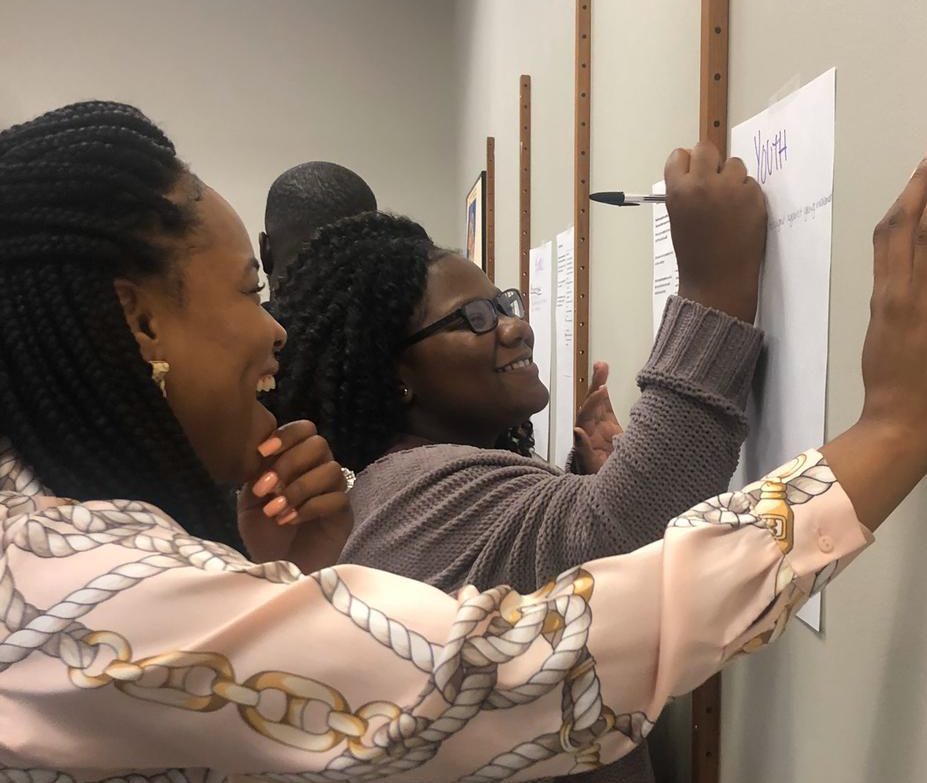
QS: One thing that came up frequently when I was reading about the PSP was PAR. Can you share a little bit about how you understand PAR as a method for doing more publicly engaged work?
MF: Absolutely. We call what we do “Critical PAR.” That signals an intentional examination and interrogation of existing power arrangements—designing research that challenges the dominant lies circulated by racial capitalism, by the state, about immigrants, about queer youth, about men/women/trans folks in prison—and that our research seeks to challenge those lies and tell a different story, both of oppression and of radical possibility.
We draw from the South American tradition of PAR—Orlando Fals Borda, Paulo Freire, Ignacio Martín-Baró—thinkers and activists who were very much engaged with social inquiry for and by the people, inquiry rooted in the perspectives of those who have been most excluded.
There are a couple of core tenets to Critical PAR, but I hate to get too prescriptive because that’s really not very PAR at all. To summarize, then, I’d say that there are some non-negotiables and a million negotiables.
First, I would correct your question and say that PAR is an epistemology—it’s not a methodology. PAR has to do with a broad and radical conception of who holds knowledge, who is an expert, where knowledge lives, and how does the knowledge of the margins—the folks who have been dispossessed—get recognized in a struggle for epistemic justice. Critical PAR challenges the notion that academics have what Orlando Fals Borda would call a monopoly on experience. To undertake this inquiry, we—a collective of academics, activists, practitioners, people impacted—use a variety of methods: large-scale surveys—created by teams of undocumented queer youth, interviews, the arts, focus groups, archives, and even historical records. The methods are promiscuous, but the epistemology is centered in the perspective of those most impacted.
Second, at the CUNY Graduate Center we are committed to, but not orthodox about, bringing very different kinds of people together to craft research. So, for example, when we are invited to a women’s prison to do research, the research team might be made up of half women in prison and half Graduate Center folks. And together we share our knowledge, our perspectives, and also our “blind spots” and what Charles Mills would call our epistemologies of ignorance. We then craft a question, a set of methods, samples, analytic techniques, and plans for how we will circulate the material that we learn: Through museums? Through performance? Through academic articles? Through zines? Through videos? Through testimony in court?
The third non-negotiable is an intentionality about to whom this research is accountable. We usually write letters of accountability before we get started. One might be accountable to someone who’s dead, to someone who’s not yet born, to friends in prison, or even to one’s grandmother. We write letters of accountability to remember that our research is rooted in the history of struggle and is designed to be of use in struggle, as well as in theory and history.
We also think through who the audience is. The research itself might be accountable to women in prison, for example, but our goal might be to convince New York state legislators. That helps us understand that there’s a translation component involved in the project.
To give some specific examples of the work we’ve done: we’ve worked with women in prison around the issue of college in prison; we also did some work with queer youth around the country. We’re now doing work with “criminalized survivors”—women who experienced domestic violence and then ended up getting picked up by the criminal justice system. When they came out of prison, they fought for ten years for a law called the Domestic Violence Justice Act. If a woman or man (cis/trans/gender expansive) can provide evidence that they were experiencing domestic violence when they committed their crime, they can potentially have their sentence retried. The research collective that’s working on this includes eleven formerly incarcerated women, two lawyers, María, and myself—the work on this project involves research action, litigation practice, and even popular education about the bloody and painful relationship between domestic violence and who ends up in prison.
Critical PAR work happens in a range of settings, as evident here, and every setting determines its own ethics, practices, and commitments. There are three core tenets—three non-negotiables, everything else is up for grabs. These three tenets are:
1. To be of use
2. To be grounded in the perspective of those most affected, and
3. To situate the work in history, theory, and activist practice.
QS: I’m also really intrigued by this idea of accountability—especially to people who aren’t in the here and now with the research collective. How do you make sure this accountability goes beyond intention? How do you ensure that your work is truly accountable to people you can’t share it with, who might not always be represented in the research collective?
MF: It’s an asymptote, really—something you aspire toward but never quite get to. In tangible ways, though, when we do work with women in prison or formerly incarcerated women, we’ve always got a community of folks who are helping us shape the questions that we’re asking. And we pay everybody for everything, and everybody ends up an author. If we go to a conference, everybody gets paid.
Right now, on the Domestic Violence Project, we’ve got a group of women inside Bedford Hills who are helping us develop a curriculum that teaches women how to move their narratives from “I did a terrible thing and I’m in prison” to “I was also being beaten at the time and I might have made a terrible mistake, but I’m also entitled to justice.” That path that I just described to you so easily, for these women, is littered with remorse and responsibility; helping women retell a story that accounts for the fullness of who they are, the conditions in which the crime took place, their sense of responsibility but also their entitlement to justice—it’s a collaborative endeavor.
A lot of the time this accountability also takes shape as self-reflexivity. Once, years ago, I was interviewing students in a racially integrated school district. With young people, Dr. Bernadette Anand (an educator) and I designed a rich oral history project, developed by and with middle schoolers in Montclair, NJ. But without even recognizing our own stance, the interviews were organized as if the legal remedy of school’s integration was an uncomplicated victory; then we—faculty and students—interviewed Black adults, including the poet Sonia Sanchez and the radical psychiatrist Mindi Fullilove, who were among the first to desegregate their schools, and they narrated all that was lost. Mindi had to leave her all-Black school, where she was loved, recognized as smart, and read about the Harlem Renaissance and Black writers and scientists, to come to a white school where other students wanted to touch her hair and where she wasn’t invited to birthday parties; Sonia explained that she came North to New York City after leaving an “itty-bitty” small Black school in the southern mountains where she had never read—in school—another Black poet. It was so important for all of us to hear these stories of the struggles of the “firsts”—those who sacrificed for still-broken dreams of integration.
QS: When you, and others at the PSP, do this research with communities, do you end up forming longer-term relationships with them beyond the end of the specific research project you’re working on? What do these longer-term relationships look like, if yes? How do you maintain them?
MF: I want to be clear that we are not studying people/communities/groups—together we design projects so that, in collaboration and with critique and radical imagination, we are studying systems of oppression—economic, criminal legal, educational, foster care—that privilege some and oppress others.
Our projects build trust and solidarities, over time. The project in Bedford Hills Women’s Prison lasted for four years in the prison, and we still enjoy friendships that have lasted three decades. Most of the women are out and we continue to organize, design research, build campaigns, and hang out.
But Critical PAR projects are not without internal struggle. When people are working across power lines, distinct histories, desires, and wounds, we inevitably stumble into what Gloria Anzaldúa would call “choques,” or clashes. And they happen on every project. People working on the project are rocking together, they’re developing a question, and then, all of a sudden, someone offends; our differences rupture. These moments are painful and generative: where we begin to understand assumptions. If you’re going to be working across power lines, you’re going to screw up, and you’re going to say something wrong. Just like Du Bois has written about double consciousness for people of color, white people don’t know that (or how) we’re also walking in a legacy of supremacy. If you’re lucky, you’re going to have those real conversations and realize that different communities have very different assumptions about the world. These choques are part of the relationship building.
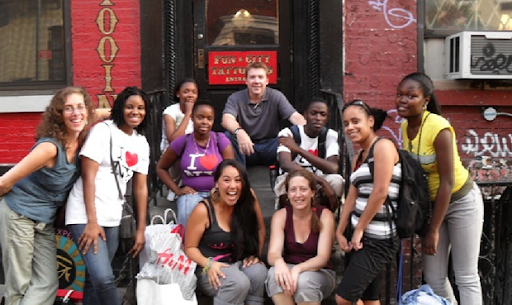
We are not studying people/communities/groups—together we design projects so that, in collaboration and with critique and radical imagination, we are studying systems of oppression—economic, criminal legal, educational, foster care—that privilege some and oppress others.
QS: I’m also interested in your thoughts about PSP, doing the kind of work that it does, in a climate of constant austerity. How does this perpetual austerity impact what PSP can do or the work that it’s already doing?
MF: When conditions of inequities and everyday life worsen, the need for activist research to challenge dominant lies, lift up silenced/buried/critical voices and analyses, confront “naturalized” forms of violence (e.g., policing/prisons for communities of color) . . . at these moments, the obligation of the public university to communities and movements for justice should be more apparent.
In the 1920s, Antonio Gramsci defined crisis as the moment when “the old is dying, the new cannot be borne and . . . a variety of morbid symptoms are evident.” That was 100 years ago . . . and today.
We’re working with lots of young people who are fighting to defund the police, and now they’re watching the hyper-criminalization of their own high schools. There are moments where it feels like, Why are we doing this research? We know it all. A big part of doing this work is also figuring out where research can be of use, in organizing, community education, in university classes, in courtrooms, in legislatures . . . and yet today when the machines of neoliberalism, capitalism, white nationalism, patriarchy seem so well oiled, the need for these university-community solidarities is high, and resources are shrinking. So, for instance, a lot of the policing work has shifted away from documenting the racialized harms that the police enact and toward working with communities instead, particularly marginalized communities—poor communities, trans communities, sex workers, and so on, asking: What could public safety look like if we didn’t call the cops, perhaps? What would we need to build for ourselves? That’s a place where movements are very eager to have activist academics to accompany communities, pay community members as co-researchers, shape the questions and the methods, and generate from the ground up a new agenda of radical possibilities.
When conditions of inequities and everyday life worsen, the need for activist research to challenge dominant lies, lift up silenced/buried/critical voices and analyses, confront “naturalized” forms of violence (e.g., policing/prisons for communities of color) . . . at these moments, the obligation of the public university to communities and movements for justice should be more apparent.
QS: My next question for you is about doctoral education and publicly engaged work specifically. Students often report feeling that there isn’t enough visibility, recognition, and even support for public-facing research. Do you feel that such institutional inertia exists, within and beyond CUNY, or do you think there’s starting to be more openness around public-facing research and scholarship?
MF: When I started doing this work in the late 1980s, I was at the University of Pennsylvania. I published a fair amount as a traditional single author and then grew more engaged with movements for justice, evolving what we now think of as a participatory praxis. A beautiful aspect of the Graduate Center is that many of our students are already deep in struggle, experienced as organizers, and hungry for activist scholarship. So it’s the obligation of people like me—the faculty and the academy—to make sure they have funding, they have places to publish, they get good letters of recommendation, they’re learning the skills that they need, and so on.
There’s definitely some pushback, though—we have to massage every institutional lever. We’ve definitely got to navigate all those border guards in the academy who are much more used to single-author traditional research. I must say—at the Graduate Center—people in the IRB office, Business Office, media are amazing at facilitating the resources from academy to community and moving our research into key media sources.
The joy of doing this work, though, is incredible—of course, sometimes it’s really heartbreaking work too. Social injustice is not a cognitive problem—evidence will not shift many policymakers who “know” that policing in school, or locking up young people, or insisting on high-stakes tests for graduation have devastating racialized impact and undermine collective well-being. That’s the heartbreak.
But working alongside people who now recognize themselves as having a voice in rewriting the history of New York, the history of women in prison, people who now consider themselves researchers even—it’s powerful, life giving. We just published an article with thirteen authors on this Domestic Violence Survivors Project! Nevertheless, this morning, now that the article’s finally in, I have to give everyone’s affiliation and biography, and I’m supposed to say what percentage of the conceptualization, analysis, etc. each person gave, and it’s frustrating because we all did it! I don’t want to be answering these questions. Those are the wrong questions, borne in the colonial mindset of scholarship as the lone enterprise of the academic.
The structures and logics of the academy don’t easily accommodate this porous membrane of researching with movements; they don’t accommodate the pace of activism, or the fact that we have to speak in multiple voices—as theorists, historians, researchers, activists. foundations and journals—they’re coming around to this kind of public intellectual work.
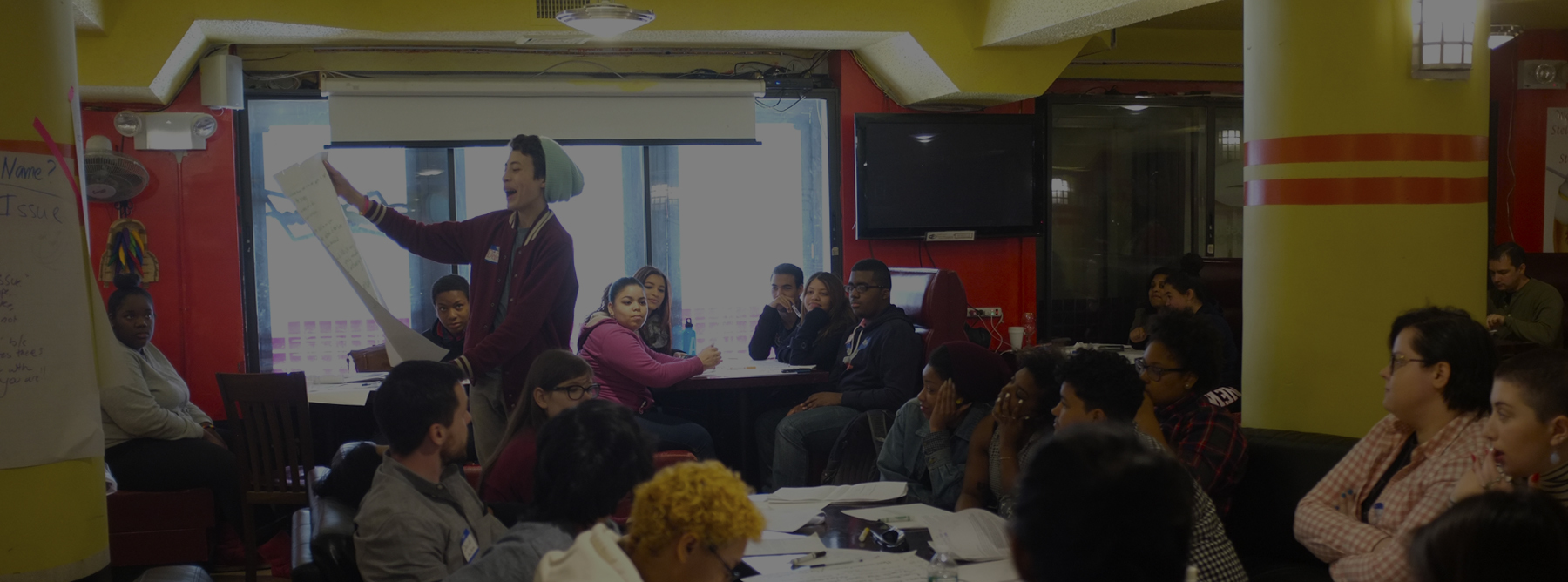
The structures and logics of the academy don’t easily accommodate this porous membrane of researching with movements—[but] they’re coming around to this kind of public intellectual work.
QS: My last question to you, then, is: What advice do you have for students who want to do more publicly engaged work at CUNY?
MF: There’s a whole community at The Graduate Center doing this work. It’s really incredible! So it’s not like you will be doing it alone. Our students and faculty and community co-conspirators are smart, bold, and rooted in deep history and radical imagination. The culture at The Graduate Center breeds courage, wild possibilities—and should breed humility as academics and particularly for those of us who are white.
Students who are coming from relatively privileged backgrounds should read the amazing—recently deceased—Charles Mills on epistemologies of ignorance and privilege. When engaged in community-based work, make sure you’re invited into a community rather than treating data like low-hanging fruit there for the picking. And, if you’re white, you’ve got to think about why you’re studying Brown children in Brooklyn rather than your own communities. There might be a really good reason, but we need humility and intentionality.
Having said that, of course, graduate students shouldn’t be doing this work alone. We have a summer institute at the PSP that many doctoral students come to; about sixty people participate from around the globe—activists, scholars, graduate students, writers, artists—all of whom are interested in doing anti-racist, decolonial, community-based research as one element of a struggle for justice. We’d love for people to join us!

